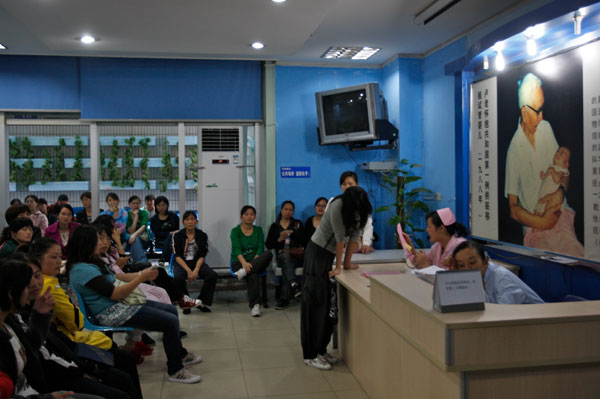Sperm shortage breeds frustration
Lack of donors causes more misery for childless couples.
Wang Jian is an athletic and intelligent young man, making him almost the perfect candidate for many Chinese women looking to start a family - even if they never meet him.
|
|
|
Patients wait to see a specialist at Xiangya Hospital's reproductive health center in Changsha, capital of Hunan province, which offers IVF treatment for couples. |
The master's degree student from Beijing is one of the few men who have answered the desperate call for sperm donors. Even more rare is that he passed the nation's strict requirements.
"Not everyone can donate, even if they want to," said Wang, 24, shortly after being told by a collection staff member that his sample was excellent.
"I'm very honored. Sperm banks only want quality donations like mine."
In fact, the density required by licensed clinics in China - 60 million sperm per millimeter - is three times that of the "average healthy male", as defined by the World Health Organization.
According to Chen Zhenwen, chief consultant at Beijing's only sperm bank, more than 80 percent fail the initial test.
Coupled with the cultural stigma, as well as restrictions on donations from men over 45 and homosexuals, the result is a dire shortage of sperm and an average nine-month wait for infertile couples seeking artificial insemination services.
The Ministry of Health began allowing sperm banks to open in 2001, setting a maximum limit of one per province or autonomous region. Today, 10 operate nationwide, all of them State-run.
"I wish there were more like Wang Jian. It would help us avoid shortages at all the banks," said Chen, who blamed the problem on rising infertility rates and the fall in sperm quality caused by men's modern lifestyles, such as spending long hours behind the wheel and in front of computer screens.
 0
0 







